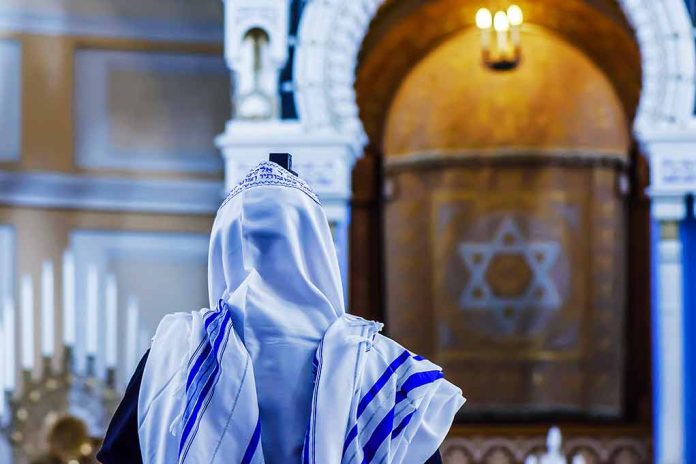
President Trump’s executive order aims at combatting antisemitism in the U.S. workplace and protecting Jewish employees.
Key Takeaways
- President Trump’s order taps a federal law initially used against the KKK to address antisemitism.
- Federal agencies must monitor foreign-related activities that are tied to terrorism.
- The Department of Justice will focus on colleges’ anti-Jewish activities and pro-Hamas advocacy.
- Agencies should examine pending complaints of civil rights violations linked to antisemitism.
- The directive underscores America’s religious tolerance and calls for diverse workplace environments.
Safety Through Legislation
Trump’s “Combatting Antisemitism in the United States” order encourages using laws originally meant to curb KKK activity to combat rising antisemitism in the workplace. The use of such legal precedents is designed to offer robust protection to Jewish employees experiencing discrimination. The order sets out directives for agencies to examine foreign students, staff, and faculty linked to suspected terrorist activities. Through vigorous monitoring and control, Trump aims to fortify legal work environments for individuals from all faiths, securing the rights of Jewish Americans at the federal level.
The Justice Department is charged with upholding law and order, specifically targeting anti-Jewish activities and pro-Hamas moments on college campuses. President Trump’s past achievements include relocating the U.S. Embassy to Jerusalem and initiating the Abraham Accords to mark his commitment to Jewish issues globally. The executive order, therefore, asserts a continued commitment to such causes domestically, aiming to cut down on pervasive antisemitism.
Addressing Issues on College Campuses
Federal agencies, spearheaded by the Department of Justice, are instructed to examine pro-Hamas and antisemitic sentiments that have escalated in colleges and universities. With Trump’s executive order, key federal departments need to submit detailed reports analyzing legal avenues to combat antisemitic activities. Educational institutions under scrutiny might face built-in accountability mechanisms to ensure a discrimination-free learning environment where bias against Jews is not tolerated.
“Immediate action will be taken by the Department of Justice to protect law and order, quell pro-Hamas vandalism and intimidation, and investigate and punish anti-Jewish racism in leftist, anti-American colleges and universities,” stated a White House fact sheet.
The order compels further involvement of entities like the Departments of State, Education, and Homeland Security to closely observe and report fraudulent activities by foreign individuals that lead to potential legal consequences. The backdrop of this policy shift comes amidst rising antisemitic incidents following the October 2023 Hamas attacks, prompting Trump to take decisive action.
Religious Freedom and Workplace Inclusivity
The executive order highlights the essence of America’s tradition of fostering religious tolerance, calling all sectors to embrace inclusivity. Informed by research from the Anti-Defamation League and Gevura Fund, the executive order portrays the challenges that Jewish job seekers face, often requiring more applications to break through the job market disparately affected by discrimination. By cementing religious protections for all, the executive order ensures that workplaces in America are more inclusive and respectful of the diverse beliefs held by individuals.
Ultimately, Trump’s move aims to fortify the shield against antisemitic acts in workplaces across the nation, standing firm on his promise to fiercely protect Jewish Americans’ civil rights and to vigorously prosecute hate crimes against them. The directive’s overarching mission is to maintain an American societal fabric that upholds freedom for all religions while resolutely acting against any form of discrimination rooted in ignorance or malice.


